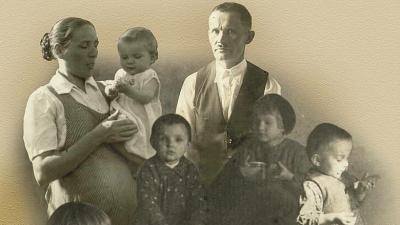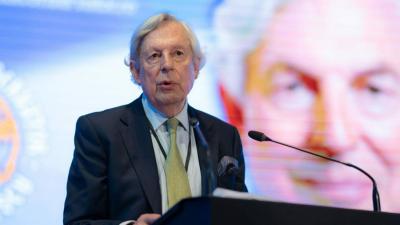The local and regional elections held on 28 May marked a turning point in Spanish politics. The most obvious summary is a clear victory of the Right and a debacle of the Left, whose most radical version practically disappears from the institutions.
The Partido Popular has achieved a decisive victory, winning an absolute majority in the autonomous communities of La Rioja and Madrid and being able to govern in six other autonomous communities with the support of VOX: Comunidad Valenciana, Baleares, Región de Murcia, Aragón, Extremadura and Cantabria. The same applies to provincial capitals: the PP has obtained an absolute majority in 12 of them, such as Madrid, Granada, Malaga and Santander, and can govern in coalition with VOX in another 18 provincial capitals. The elections are a reinforcement for the leader of the Popular Party, Alberto Núñez Feijóo, but also for the president of the PP in the Community of Madrid, Isabel Díaz Ayuso. The Popular Party obtained 7 million votes, almost two million more than in 2019. “We have taken the first step towards a new political cycle,” said Núñez Feijóo. A change of cycle that seems to be closer given the reaction of the PSOE.
The socialists, with just over 6 million votes, have only lost 430,000 with respect to the 2019 elections, but the sum of PP and VOX has once again proved sufficient to put an end to the hegemony of the Left. The Socialists narrowly retain the Community of Castilla la Mancha and could govern in coalition in Asturias and Navarre. At first, the PSOE spokesperson and Minister of Education, Pilar Alegría, pointed out the need to reflect on the coming months and to “make an effort” to achieve “confidence” in the general elections; however, the surprise came the next day with the appearance of the President of the government, Pedro Sánchez. In what appears to be an attempt to prevent the PSOE from being further eroded in the general elections scheduled for the end of the year, the president announced that the elections would be brought forward to 23 July. Sánchez is afraid, maybe, but with this unexpected manoeuvre he is silencing any internal reaction to his leadership and leaving Podemos and the other parties of the Left, his allies, battered, allowing the Socialists to present themselves as a "useful vote" to the voters of these parties.
Podemos has suffered a total defeat. The party that came to “conquer the skies” is heading for a more than probable disappearance and has lost its representation in three autonomous regions, Madrid, Valencia and Las Palmas. It has also disappeared in five of the six regional governments where it was present, and in Spain as a whole it has gone from 47 regional seats to 15. The same has happened in many cities, where Podemos lists have been wiped off the map. “The right and the extreme right have even more power today. We have put all our enthusiasm and courage but our results are bad. Now it’s time to get down to work,” wrote Ione Belarra, its secretary general, on Twitter. Podemos have not yet accepted, or do not want to accept, an electoral punishment that is a consequence of their radicalism and their total estrangement from the people they claim to defend. Their start of the campaign was a Dantesque spectacle of transsexuals and non-binaries, something that, as everyone knows, is a major concern of the workers of a country mired in a serious economic crisis. The Podemos splinter, Sumar, was not standing in the elections, but some of the parties with which current vice-president Yolanda Díaz intends to form a coalition were. Its main ally, Ada Colau, has come third in Barcelona and lost the mayor’s office; Compromís has also lost the mayor’s office in Valencia and the regional government; Más Madrid, which split from Podemos years ago, has lost votes and is incapable of standing up to the Partido Popular. In this lamentable situation, Podemos and Sumar have only ten days to decide whether to join forces in the general elections.
Of Sánchez’s allies, the only ones who have done well are the separatists of EH Bildu. Despite the scandal for presenting ETA terrorists on their electoral lists, EH Bildu has won 50,000 more votes in the 2019 municipal elections and has beaten the PNV in Vitoria. Although the PNV is still the leading political force in terms of votes, the separatist left has 1,051 councillors compared to the PNV’s 979. VOX has unsuccessfully called for the outlawing of this party, heir to other organisations outlawed for their links with ETA terrorism, and is now an increasingly decisive party in the Basque Country, with all that this may imply.
Another party that has disappeared in these elections is Ciudadanos. A centre and liberal party that sought to emulate Emmanuel Macron's party in France. After agreeing in different governments with socialists and popular parties, Ciudadanos has lost all its representation and the next general elections will sign the definitive demise of the "centre" party.
The other big winner of these elections is VOX. Santiago Abascal's party has become the key to change and consolidates VOX as the third political force in Spain. VOX has gone from 547 councillors in 2019 to 1695 and enters all the autonomous parliaments, from 47 to 119 autonomous deputies. Moreover, with the sole exception of the Community of Madrid, where VOX lost three regional deputies, the good results of the PP have not diminished the strength of VOX, which shows that its vote is not a "borrowed vote". One result worth highlighting is that achieved by VOX in Catalonia where, despite the unmerited violent attacks against its affiliates, VOX has entered the four provincial capitals: Barcelona, Tarragona, Lérida and Gerona, and has gone from having three councillors to more than 120 in the entire autonomous community. Regarding the electoral advance, VOX considers that it has been the only positive news that Pedro Sánchez has given in these four years.
VOX has already reached out to the Partido Popular with a view to repeating the Castilla y León model in the autonomous regions where both parties need each other to govern. The question is what position the PP will adopt, for example, the candidate in Extremadura, María Guardiola, has asked the Socialists and Communists to abstain in order to be elected, but the truth is that it needs VOX if it wants to have a stable government. The early elections could delay the formation of regional governments and, therefore, not clear up the uncertainty of the next government at the national level formed by VOX and the Popular Party. A government that, as Santiago Abascal says, would aim to oust Pedro Sánchez in order to repeal each and every one of his policies. This is the desire of the majority who voted for change.
Read also
The Martyrdom of the Ulma Family
On 24 March 1944, German police raided the Ulma family farm in Markowa, Poland.
Álvaro Peñas
Tanja Brkić: 'The woke agenda, which hides behind a »benevolent« mask, represents evil. An evil that must be destroyed'
When I look at the current situation in Slovenia in the political space, I can definitely say that cultural Marxism is not just a myth.
Álvaro Peñas
“The West dropped its guard and was slow to recognise the emergence of a new, revanchist dictator in Russia”: An Interview with Geoffrey van Orden
Geoffrey Van Orden is a former British army brigadier-general who subsequently spent 20 years as a Member of the European Parliament.














Comments (0)